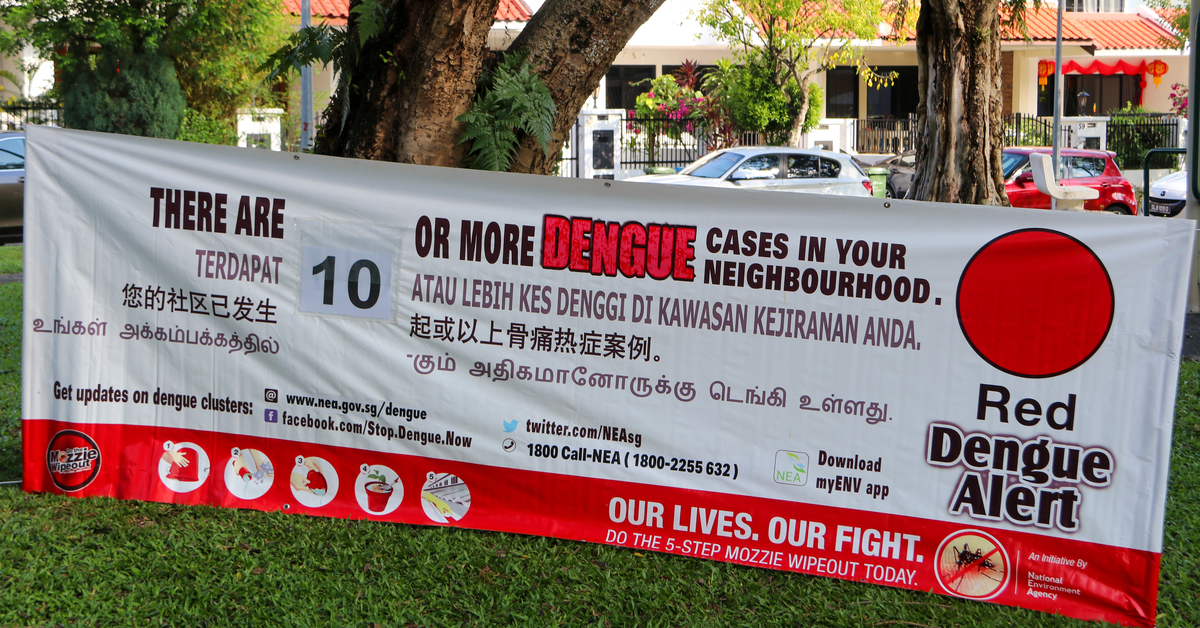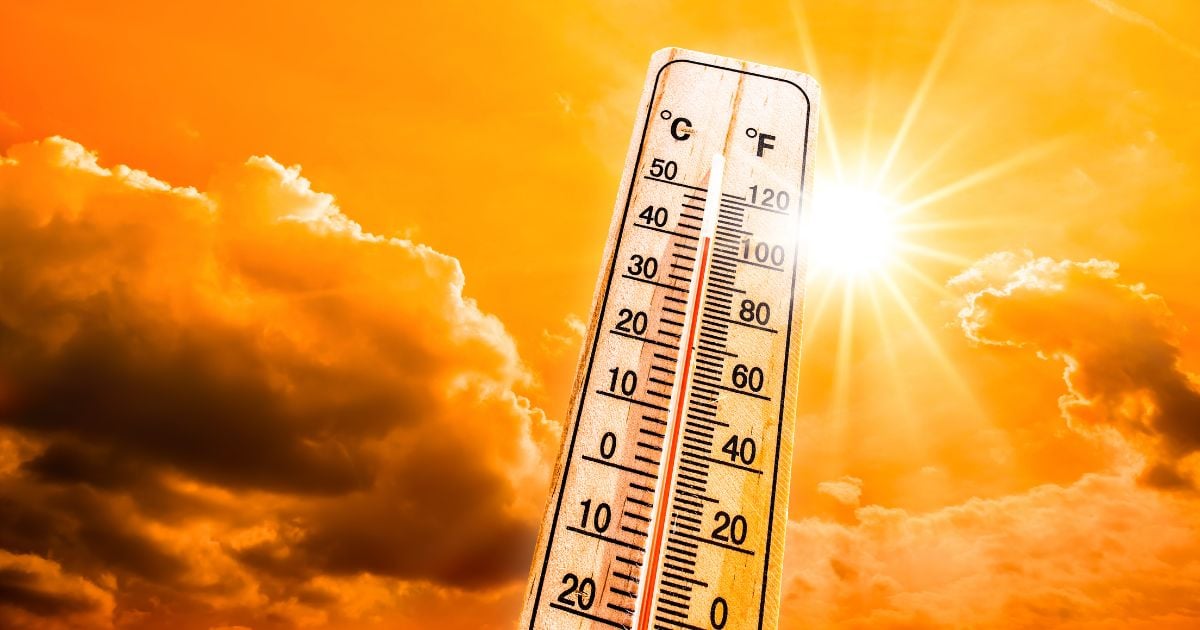It may be hard to believe, given how widespread and devastating the COVID-19 pandemic is, but more people died from dengue than COVID-19 last year in Singapore.
COVID-19 claimed 29 lives in 2020, while dengue killed 32 people.
2020’s dengue death toll was the highest since 2005, when 25 people succumbed to the disease.
(I was today-years-old when I found out that we not only have a daily count for COVID-19 cases, but also one for dengue.)
Since the start of this year, over 2,700 cases of dengue fever have been reported. Now, experts are warning of an outbreak.
Experts: New Strains of Dengue Could Cause A Larger Outbreak
New strains of less common dengue serotypes could increase the likelihood of an outbreak here.
There are four known dengue variations, of which the DenV-1 and DenV-2 serotypes are the most common here.
Serotypes are groups within a single species of microorganisms, such as bacteria or viruses, which share distinctive surface structures.
Most of our infections since 2016 have been from DenV-2, meaning recovered patients would have developed immunity against this strain.
But more recently, other strains have been infecting residents here.
In 2020, the authorities reported the first DenV-3 outbreak in Singapore in 30 years.
Between 2014 and 2018, DenV-3 infections made up 11% of total dengue infections in Singapore. But in 2020, this shot up to 47%.
What’s more, DenV-4 cases also increased last year from 4.8% of infections in January to 23.1% by December.
Reasons for Rise in Cases
According to Professor Lok Shee Mei from the Emerging Infectious Diseases Programme at Duke-NUS, the recent rise in dengue cases could be attributed to our new working arrangement.
More people working from home means the Aedes aegypti mosquitoes, which are day biters, have more opportunities to bite us.
Aedes Mosquitos: Night time is rest time.
Warmer and rainier weather can also lead to an increase in mosquito populations and consequently, increased feeding.
Additionally, in areas where there is herd immunity against both the DenV-1 and DenV-2 serotypes, DenV-3 infections would likely be higher if mosquitoes were breeding in the area.
New Strains Typically Come From Abroad
Just like the coronavirus, it seems mosquitoes enjoy travelling too. Well, at least someone’s able to travel.
According to the National Environmental Agency (NEA), new dengue strains are typically introduced through imported cases. Wow, doesn’t that sound like our good ol’ friend COVID-19?
And of course, since it’s a new strain and we don’t have immunity to it, it could cause an outbreak.
Analysis of DenV-3 samples here identified three genotypes closely related to those found in Indonesia, Malaysia, the Philippines, Thailand, Saudi Arabia, and Cote d’Ivoire.
Even with travel restrictions, new dengue strains from other countries may have found their way to Singapore.
While our main concern is still the coronavirus, we need to be wary of dengue too.
To prevent mosquitoes from breeding, residents should:
- Cover floor traps and toilet bowls
- Seal off overflow pipes of flushing cisterns
- Add sand granular insecticide to places where mosquitoes could breed and where stagnant water cannot be removed
- Clear debris or blockages in roof gutters and place insecticide
- Turn over all water containers and wipe the rims dry
- Ask a relative or friend to check your home regularly for stagnant water if you’re abroad
If you want to find out more about dengue fever in Singapore, you can check out this article here. Or if you prefer to watch a video about it instead, you can check out the following video:
Feature Image: Dr David Sing / Shutterstock.com




